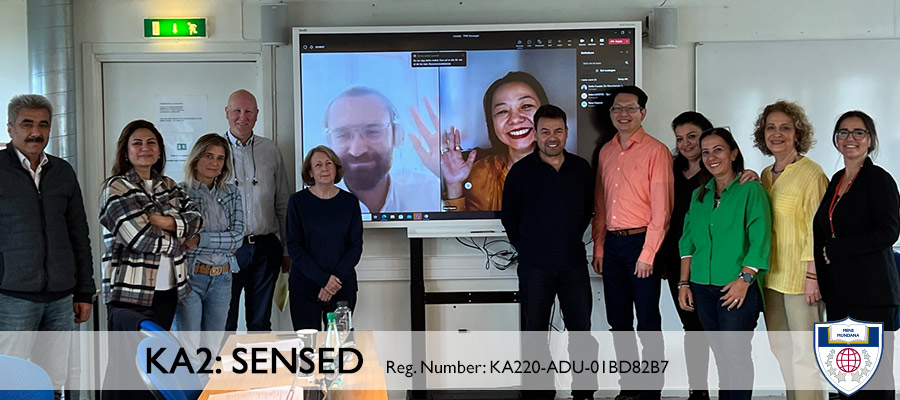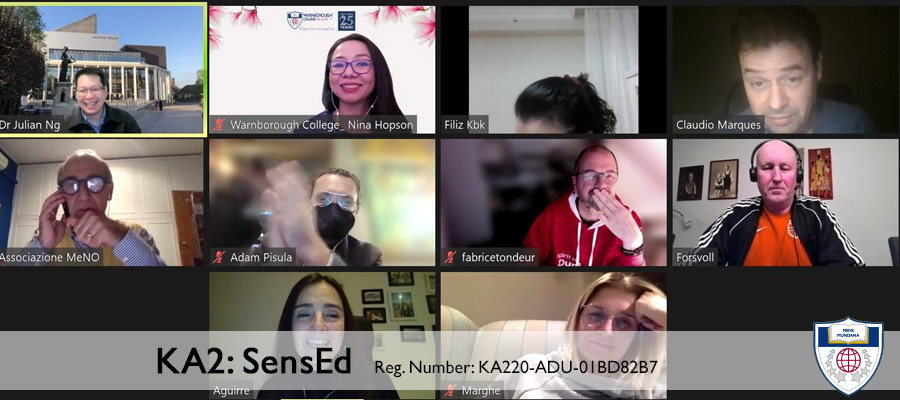SensEd: An Erasmus+ Project

The SensEd project aims to showcase the importance of incorporating sensory skills in education (SSE) to improve the learning of youth and adults. SSE is key to equipping youth and adult learners with lifelong learning competencies, increasing their motivation, and engaging them directly with the world around them. SSE understands that effective learning covers many dimensions including mental health development, motor and cognitive skills improvement, and the holistic development of individuals. SSE impacts greatly on brain development and learning patterns. The SensEd project has two main objectives:
- Create a strong research-led case for SSE to be incorporated in VET schools/adult learning centres, and provide a curriculum or extracurricular development framework and tools for this purpose.
- Improve the overall educating (and course development) experience for teachers or trainers, and the learning experience for learners, while improving learners’ skills in essential areas such as critical thinking, green skills, complex problem-solving and creativity.
Sensory Skills Education for Lifelong Learning Competencies (SensEd, 2022-2024)
Reg.Number: KA220-ADU-01BD82B7
Duration: 30 months
Programme: KA220-ADU – Cooperation partnerships in adult education
Grant Holder: Stavanger offshore tekniske skole
Aims
The project will enable youth and adult learners, teachers and other educational stakeholders to leverage knowledge, practice and innovation. The demands of the 21st century have created enormous and urgent challenges in maintaining sustainability and a greener economy. They remind us of our relationship to nature and help us reconnect with nature. An infinite field of sensations that we have to learn or learn again so we can also learn to feel nature again to protect and respect it.
The SensEd project hopes to shed light on the latest research and best practices in SSE, and demonstrate its importance in building a sustainable educational model for a sustainable future. It predicates this with an understanding that for many countries, a SSE syllabus can run alongside a traditional VET school/adult learning centre curriculum without the need to change or displace it. Furthermore, it is hoped that the results will clearly demonstrate that embedding SSE within the traditional curriculum is absolutely necessary in the long run.
Objectives
- The project will target teachers and learners of VET schools and youth and adult learning centres, including learners who may be disadvantaged or disabled.
- The results of the SensEd project will hopefully convince other schools and education policy makers/leaders to seriously consider incorporating SSE within their own curricula.
- We envisage impact on 4 levels:
- partners: they will develop and enhance their knowledge, skills on SSE
- staff of partners: they will use the acquired knowledge, insights, skills as ‘experts’ in SSE and SSE-led curricula
- the target groups: teachers will gain the knowledge, skills and confidence to develop and implement SSE modules alongside their normal curriculum; learners will gain important life, study and practical skills and become more motivated to learn
- systemic: the importance of SSE will be disseminated and it is hoped that relevant stakeholders will incorporate more of it in traditional education models/curricula
Consortium
- Stavanger Offshore Technical College (Norway) – Project Coordinator
- Escuela Internacional de Artes, Audiovisuales, Digitales y Espectaculos (Spain)
- Warnborough College (Ireland)
- Escola Profissional do Minho (Portugal)
- Associazone Culturali MeNO (Italy)
- Çagdaş Drama Association (Turkey)
- Çankaya District National Education Directorate (Turkey)



